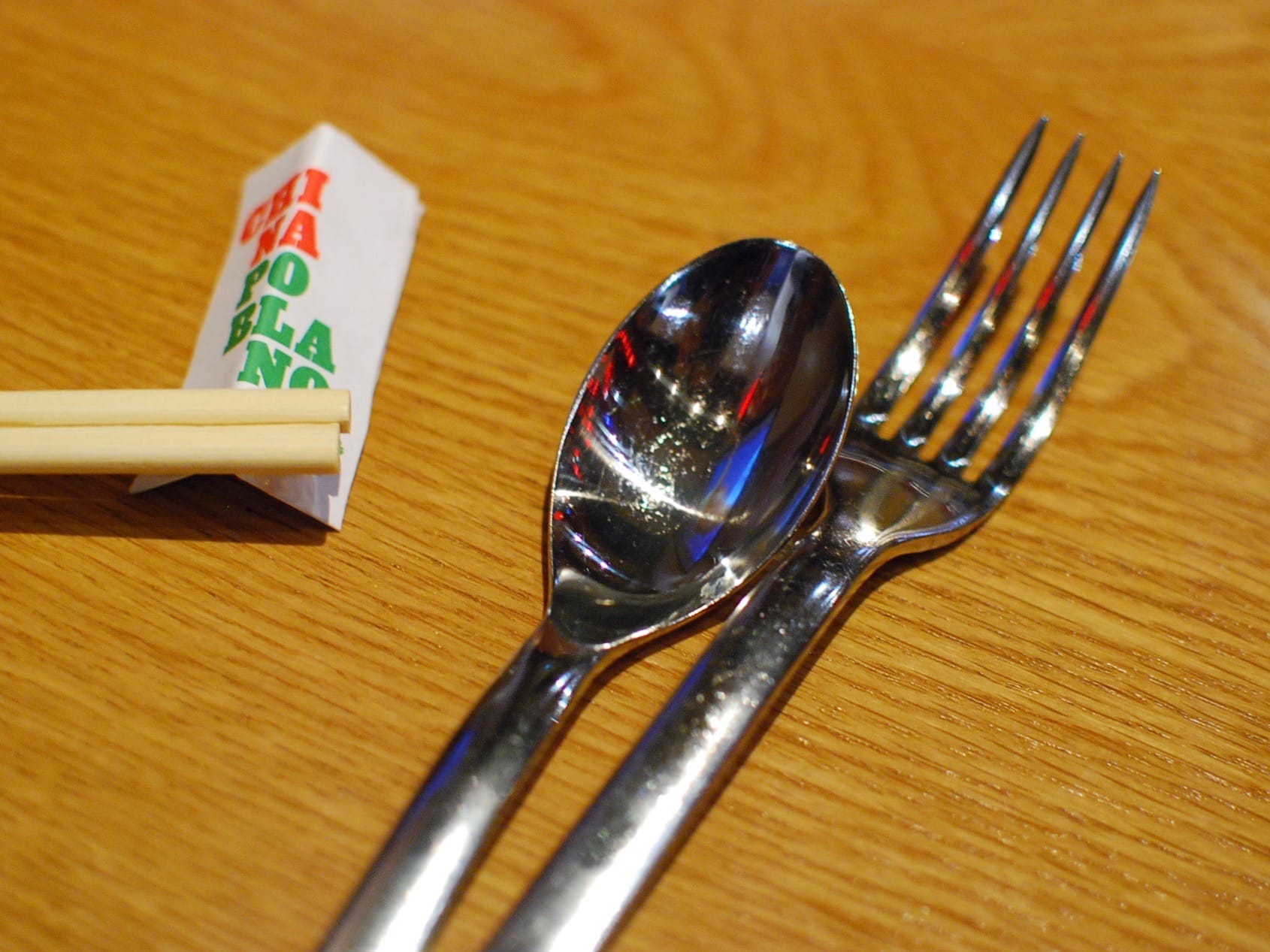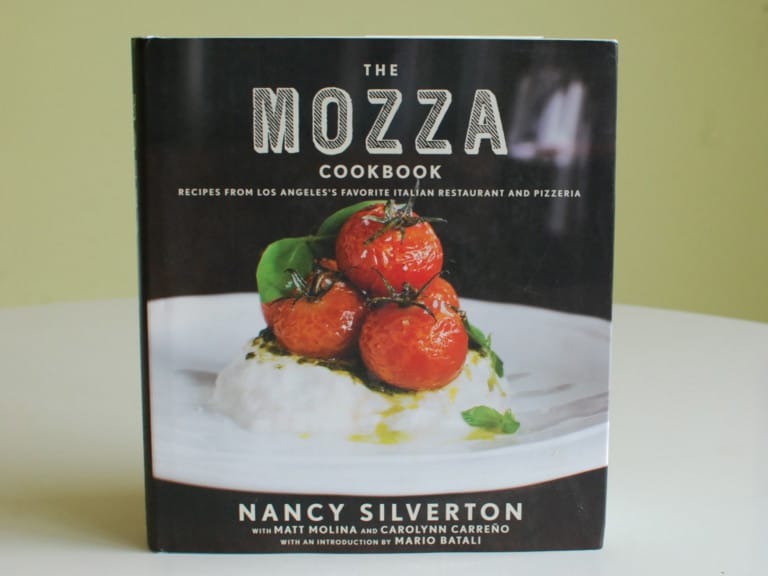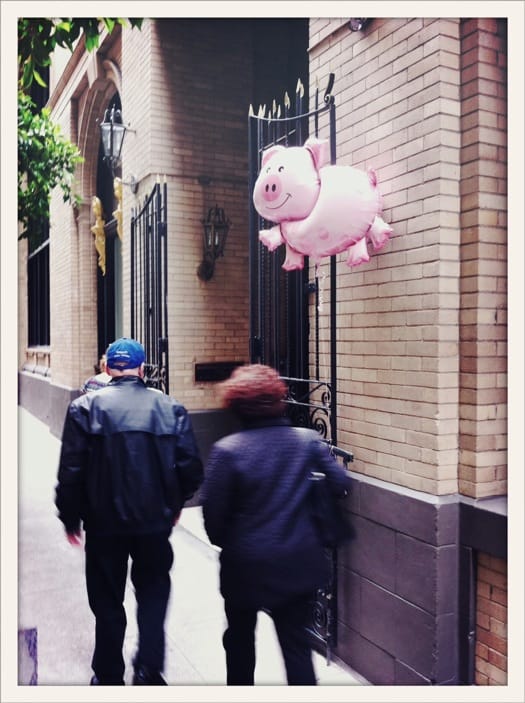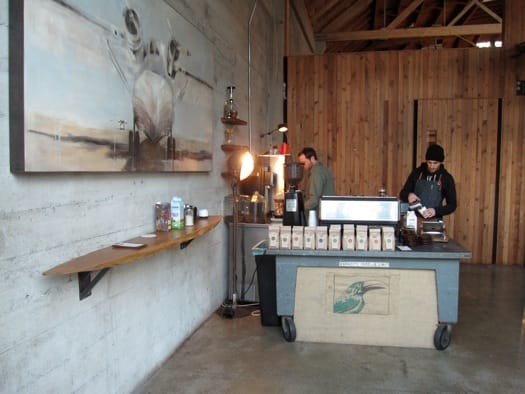Anyone who dines out knows that your final opinion about a place is so much more dependent on the kind of service you receive than the actual food on the plate. Unless you have different expectations, like at certain ethnic restaurants, we go out to eat so that we can receive a certain level of service.
The food service industry is called the food “service” industry. In L.A. we know we’re plagued by the ever transient actor or actress trying to get the part, but there are plenty of others who do this for a living, or to legitimately support themselves. I also work in the food service industry, though in a much less serious way – at an artisanal ice cream shop. I still have to interact with hundreds of people a day, and it can become very tiresome. It doesn’t mean I don’t love what I do, it’s just that I understand the routine that comes along with serving people.
I started thinking about what service really means when we dine out. Last weekend, I was hoping to get a good brunch with some friends on a top-level Westside place that serves amazing food with top-shelf ingredients in a charming space. We did not make a reservation because I didn’t think it was going to be busy later in the service. I checked the hours on Yelp, which incorrectly stated that the restaurant opens at 7 AM and closes at 3 PM. I should have checked the website, which said that brunch was available from 8 AM to 2 PM on the weekend. We had to find parking for almost ten minutes and arrived at the restaurant at exactly 2:08 (I checked multiple times to make sure).
Yes, technically we were late. But there were still many diners seated, some that hadn’t even received their plates. The hostess kindly asked if she could find out if the kitchen could still produce dishes for us. She went to the back, asked the staff, and returned saying that they could not accommodate us. I was disappointed and asked kindly again if there was any way to seat us. I probably should have asserted that we were planning to eat a decent amount and order quickly so that the kitchen (who had probably been there for a solid 8-9 hours at this point) could close until dinner later that day. Even if they weren’t opening for dinner, the kitchen was still in full operating mode, not shutting down, at least from what I could see.
I could see the chef and general manager looking over to us, even after we’d been told that we couldn’t be served. I was definitely disappointed at this point, but what I could do? We wandered around trying to find something else to eat before I succumbed to a baked good at the restaurant’s bakery and left a $2 tip. It was pretty damn tasty. But what I really wanted was to sit down and enjoy a good meal. Would it have been that hard to accommodate us?
We run out of ice cream all the time at Scoops. We have to close early sometimes. When that situation occurs, I’m generally one to give away the little that we have left in to-go containers. If I happen to be at the shop and we have product left, I’m more than happy to serve people after we close. I can see how it’s different for a kitchen that’s full of staff and demands that a kitchen be broken down. Each additional hour is a labor expense. The difference between us getting served and enjoying a good meal (actually, I’m quite sure it would’ve been one of the best brunches in the city based on my previous visit) turned out to be eight lousy minutes.
I could have name-dropped (though that often fails, and for me, most definitely would have failed – who am I anyway?). I could have appealed further, but they made their decision. But I didn’t feel like I committed a huge error by arriving a few minutes beyond closing. It’s not like getting to a bar past last call (when Alcohol Beverage Control regulations restrict further pouring).
I know I’m going to be returning to this restaurant again, because I’m convinced that it’s one of the best meals to be had in L.A. It’s not like this is a normal neighborhood restaurant – people have to sometimes travel very long distances to eat here. It’s a bit of a destination, so turning someone down was a huge downer. But I can’t help but wonder about a place that purports to be a top-level restaurant, but can’t deliver two of the most basic aspects of service, hospitality and flexibility. I guess that means it isn’t a top restaurant – yet.









Blog Comments
mattatouille
October 10, 2011 at 6:12 PM
Jess, I probably should have stated a few more details about what I experienced, like that I seemed to be sized up as a customer before they made the decision to seat me or not. But since that seemed more like something that wasn’t clear (and just implied), I wasn’t going to be base my case on that. I do agree that if the kitchen had already broken down their stations and was preparing to close completely, then I would have understood. If fact, it would’ve been better to get an explanation from the staff instead of just a straight refusal to seat me. In addition, I could see how something like brunch is something that only occurs twice a week, but at this particularly restaurant, it’s not just a twice a week affair, so they probably run into this situation quite often. People probably travel very long distances to try this restaurant – I’d figure they’d have to make this explanation often. As someone in industry I have to explain things to sometimes very disappointed customers. Lastly, I was never expecting to be seated after they told me they’d technically closed. It’s their prerogative to serve people after the time they close, but I really see open/close times as a guide, a sort of discretion. They used it this time to say that they didn’t have to serve us. It just would’ve been a courtesy, that’s all, and that’s what I think service should be.
I own a food establishment and I know how hard it is day in and day out to produce excellent service – it’s a tireless commitment and there are days when I personally don’t even seem as committed to it as some of my employees, which is a testament to their dedication more so than my ‘training’ of them. I also know that it’s that very commitment that elevates a good place to a great one.
TreasureLA
October 10, 2011 at 10:27 AM
I agree with Darin here. I don’t necessarily blame the restaurant for refusing to seat your group, but it is also not unreasonable to have expected the restaurant to seat you considering it was “eight lousy minutes.” It would have made the diners grateful and helped the reputation for great service.
Jess
October 5, 2011 at 1:23 PM
I’m certainly not arguing against anything that Matthew wrote — I actually think it’s one of the more thoughtful pieces I’ve seen in LA regarding this topic. Most LA guests tend to flip out, refuse to ever return and generally will bash a restaurant in this circumstance to anyone and everyone they can, which I personally believe is just a sad sad commentary on just how ill-behaved our society has become. One point, though, to keep in mind: most pastries are made well in advance of service, so that’s easy to just pop in a bag and ring up – same with most sandwiches, especially for a brunch service.
Yelp, and other ancillary sites, certainly DOES provide a positive element in our culture, as well in the food industry, especially when providing a service – however, I have seen too many negative ramifications from self-entitled “experts” who have unfairly caused damage — ie, vegetarians giving terrible reviews of restaurant that clearly specializes in house-cured meats, knocking service and management in the case of another ill-behaving patron, etc to not think that there needs to be some sort accountability for what people write out there on the infinite-reaching world wide web. At any rate, I digress. And I certainly plan on returning to this particular spot
Joshua Lurie
October 5, 2011 at 1:47 PM
Thanks for the additional feedback, Jess. Matthew did take a measured view of the situation, and it made me think about what the restaurant (or Matthew) could have done differently, if anything. Definitely an interesting case study. And yes, I’d go back to the restaurant too.
Jess
October 5, 2011 at 12:32 PM
Having been in the restaurant industry for a decade, and most certainly having had to transition from brunch dinner, while I certainly understand the guests’ point of view and would have tried to accommodate them, it’s really important to understand that by just seating that late table, it would actually very likely put kitchen staff for sure into overtime, messed up the flow transitioning staff, station transition, and potentially they had run down or out of quite a few menu options – as is likely the case for mist restaurants that serve. They are usually looking to run out of the majority of their prep because brunch is only 1-2 days a week. That being said, by turning down the guests who showed up after the closing time, they were likely making the decision based on all of the above AND the same reasons as showing up 8 minutes past the closing time. Would you reasonably expect to be seated after a place is technically closed? It is poor manners and inconsiderate at best. BUT they should also do some due diligence by addressing the yelp info, and having asked the guests if they’d like to schedule an appt for next week. Unfortunately, as mixed as I feel about yelp, this is certainly yet another example of how yelp can hurt a restaurant’s business.
Joshua Lurie
October 5, 2011 at 12:54 PM
Jess,
Those are some good points about throwing off the timing, prep and flow. The restaurant may have been transitioning from lunch to dinner service, but they were still willing to sell Matthew a pastry, so while they stopped brunch service, they clearly weren’t fully closed.
It’s interesting that you brought up Yelp. It’s unfortunate that restaurateurs have been put in a position where they have to police misinformation on ancillary sites like Yelp. Also, Matthew Kang did take some responsibility for the timing, saying he shouldn’t have relied on Yelp’s listed hours, and should have confirmed directly with FarmShop’s website instead.
Darin
October 4, 2011 at 11:37 PM
You bring up an interesting thought. I think if a restaurant is technically closed, it’s their prerogative not to serve someone that walks in. But it’s clear they didn’t bend just a little to serve someone that obviously really wanted to eat there…that, in itself, may have created a memorable experience.
I’m pretty sure I know the restaurant you’re talking about, and it’s interesting because I feel the chef/owner’s background is from a restaurant group that’s had some of the highest levels of service I’ve ever experienced.
Joshua Lurie
October 5, 2011 at 12:05 PM
This is one of those situations that could have gone either way, but based on all the available information, my take is that the restaurant should have made an exception, since they were still making food, and there were no hard restrictions that restricted their ability to make more food. If this was the end of the night, a “no” would have been more understandable, but in this case, they were going to reopen for dinner.